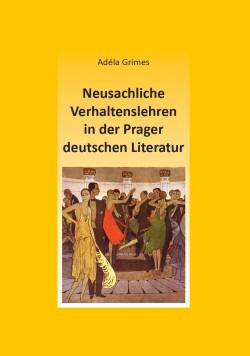Popis
Předkládaná publikace se zabývá analýzou pražského německého románu 30. let 20. století v souvislosti s literárním směrem Nové věcnosti. K výzkumu byly vybrány tři méně známé pražské německé romány, Malenski auf der Tour Otta Roelda, Kinder einer Stadt Hanse Natonka a Blanche oder Das Atelier im Garten Paula Kornfelda, na kterých je ukázáno, že se programatika Nové věcnosti neodráží pouze v dílech autorů z Výmarské a Rakouské republiky, nýbrž že je i nedílnou součástí fenoménu pražské německé literatury. Kromě přezkoumání příslušnosti těchto tří románů k literární Nové věcnosti je důležitou součástí i zevrubná charakteristika samotné Nové věcnosti a biografické kapitoly k příslušným autorům, obzvláště v případě Otta Roelda, jehož životopisné údaje doposud nebyly nikde zveřejněny.
This publication deals with the new-objective way of writing and new-objective cool conduct and its occurrence in Prague-German literature. Three representative novels, Otto Roeld’s Malenski auf der Tour, Hans Natonek’s Kinder einer Stadt, and Paul Kornfeld’s Blanche oder Das Atelier im Garten, were chosen to demonstrate the appearance of New Objectivity within the ‘circle’ of Prague-German authors. New-objective features analysed in these works prove the hitherto prevalent marginalization of New Objectivity within German-written literature in Prague to be unjustified. The biography of the authors included in this publication points out their most important stages in life, as well as their participation in the cultural space of Bohemia and the Weimar Republic.

